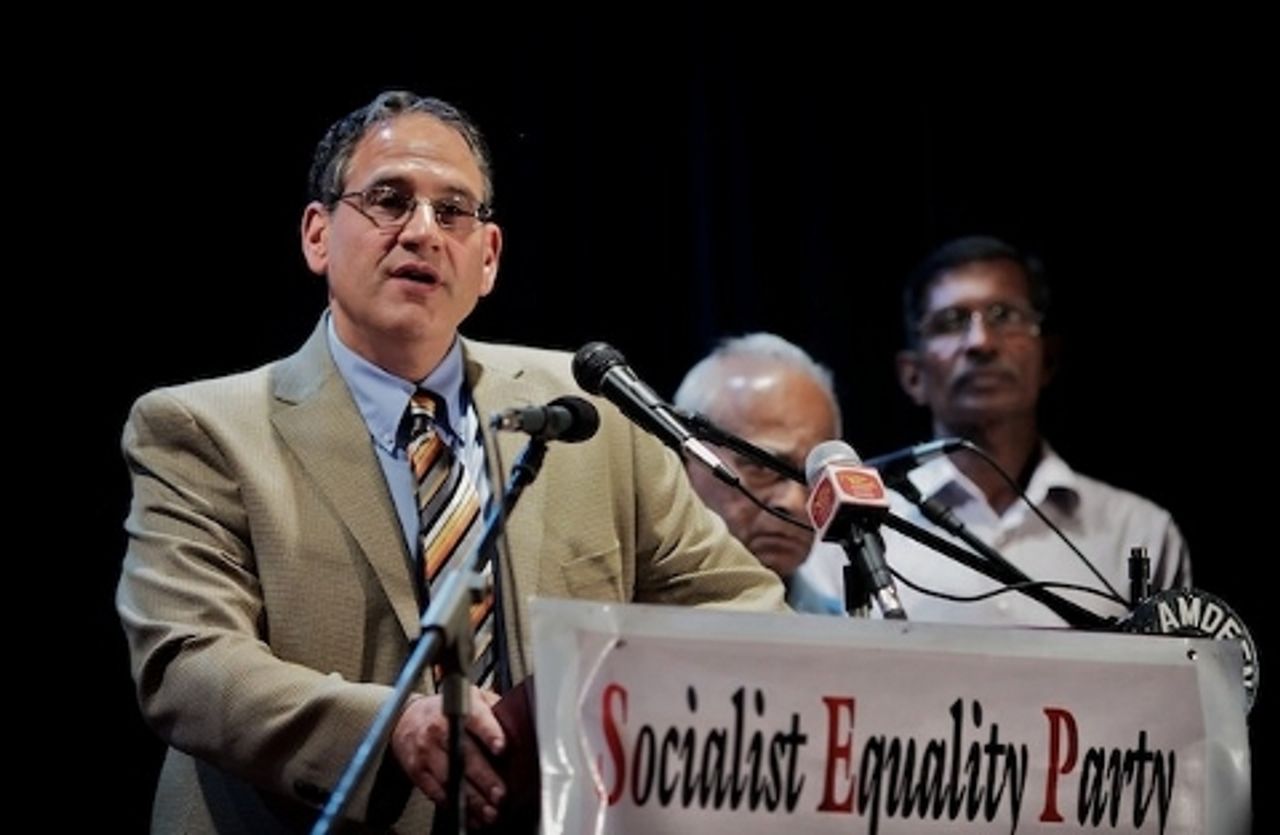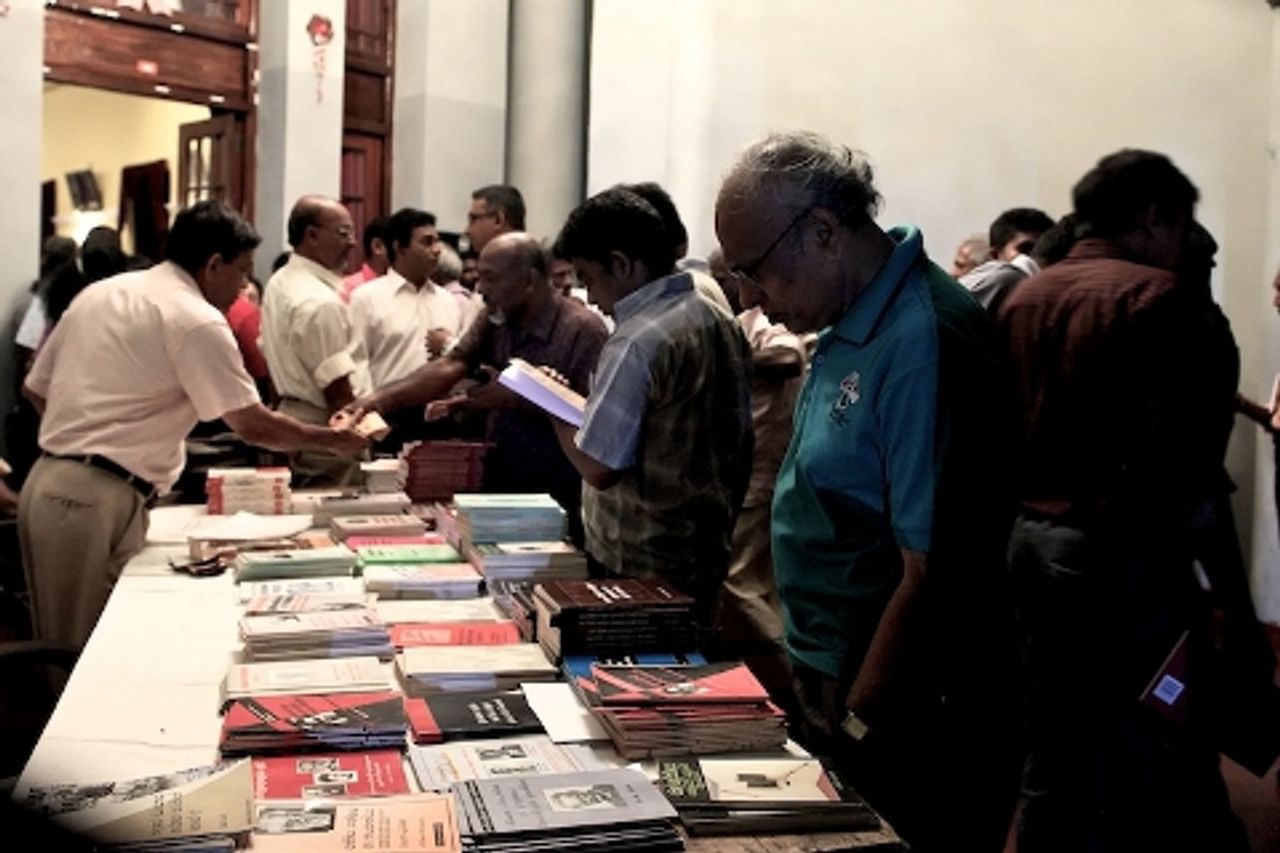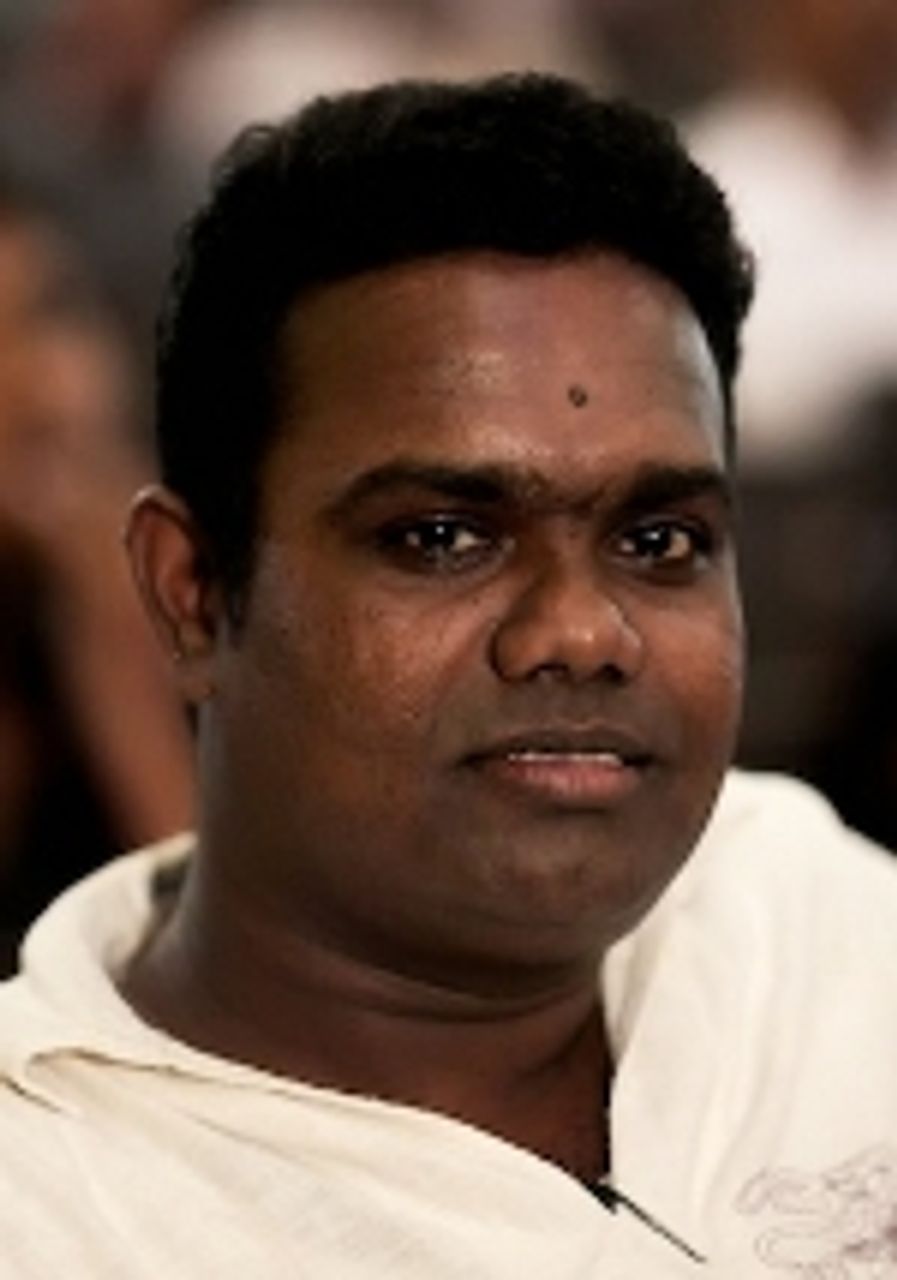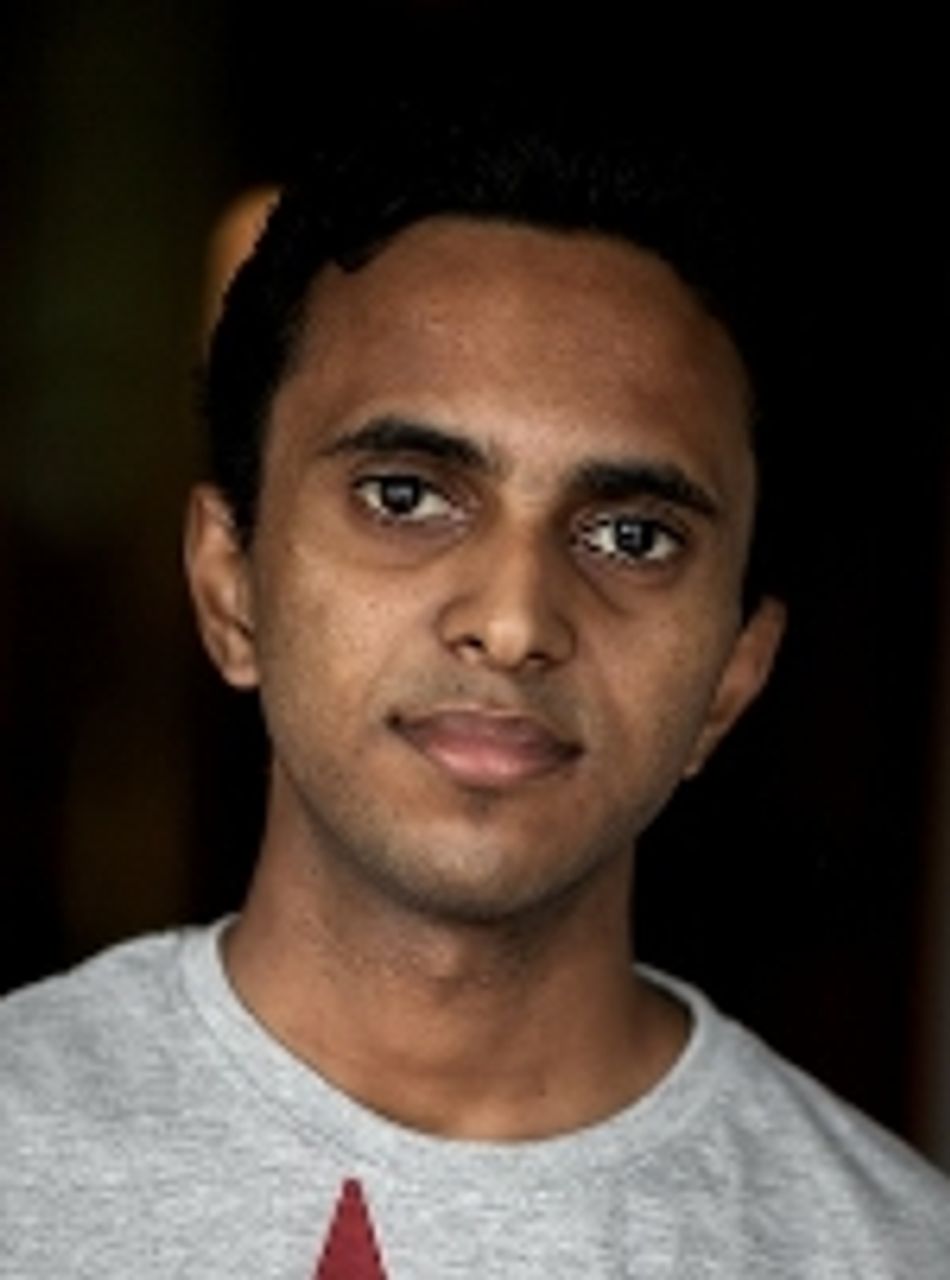The speech by US SEP presidential candidate Jerry White to last Sunday’s meeting at the New Town Hall in Colombo opened up an important discussion. Following extended questions and answers in the meeting itself, participants remained behind to talk to Socialist Equality Party (Sri Lanka) members, speak to WSWS reporters and buy literature.
Great interest was shown in the political issues in the United States and the perspectives behind the SEP’s presidential campaign. The questions and discussion pointed to a developing understanding among workers and young people that the situation in Sri Lanka and their fate is intimately bound up with broader international economic and political processes.
 Jerry White
Jerry WhiteThe island’s brutal 30-year communal war and the worsening attacks on living standards have generated deep disaffection and resentment among the masses. The betrayals of the trade unions, aided by various ex-left organisations, are forcing workers to look for a political alternative. International events—the global economic crisis centred in the US, the revolutionary uprisings in Egypt and Tunisia, and the US-led wars in Afghanistan, Iraq and Libya—have all raised deep concerns among working people in Sri Lanka.
One young worker asked White about the Occupy Wall Street protests in America, which received media coverage in Sri Lanka. He wanted to know what social layers had been involved, what policies advanced and the attitude of American workers towards the protests.
White explained the protests had initially won broad support because of pent-up anger over social inequality, the bailout of the banks and the pro-business policies of the Obama administration. The workers were generally sympathetic and deeply angered by the police attacks on the protesters, he said, but the movement was largely dominated by college students hit hard by student loan debt and middle-class sections of the population, including professionals and artistic layers.
“The key issue,” he said, “was what political perspective and leadership could take this movement forward. The anarchists and pseudo-left groups that politically dominated blocked any discussion on a break with the Democratic Party and the fight to mobilize the working class on the basis of socialist policies. In the end, this gave the unions and the Democratic Party a clear field to smother the movement, and channel it behind the reelection of Obama.”
In the final analysis, White explained, the various pseudo-left groups that dominated the protests, reflected the interests, not of the working class, but privileged sections of the upper middle class who want a redistribution of wealth within the top 10 percent of society, not the overthrow of capitalism. “Our party fought to mobilize the working class and explained that social inequality, war and all the other evils created by the capitalist system could only be abolished on the basis of the independent political mobilization of the working class and the fight for socialism.”
 Audience members purchasing SEP literature
Audience members purchasing SEP literatureAnother questioner asked the presidential candidate to explain more about the revolutionary traditions in the United States. White said both the Revolutionary War against British colonialism and the American Civil War were world historical events that had inspired great upheavals from the French Revolution to the anti-colonial struggles after World War II.
He noted that next month is the 150th anniversary of Lincoln’s Emancipation Proclamation freeing the slaves, which transformed the Civil War into a revolutionary struggle. “Until the Russian Revolution,” White said, “the freeing of the slaves was the greatest expropriation of private property in history.”
White said that contrary to the revolutionary role played the American bourgeoisie in 1776 and 1862, today it was carrying out neo-colonial wars just like the British Empire had. “In America, the ruling class was trampling on the US Constitution and basic democratic rights,” he said, pointing to Obama’s assertion that he had the right to assassinate US citizens deemed “terrorists” without the slightest evidence, any charges or due process.
“The working class is the bearer of America’s revolutionary traditions,” he said, “and it is becoming clear to millions that the most basic democratic and social rights are incompatible with the domination of a financial aristocracy, whose wealth and power would make old King George and the European aristocrats blush.” Such entrenched power, he said, could only be broken by a struggle by the only revolutionary force today, the working class.
A youth asked how the SEP in US would break the foundations of capitalism, if White won the election. Rejecting a parliamentary road to socialism, White said that a fundamental transformation and breaking the grip of capitalist class would not be achieved by the election of socialists but only through the political struggle of the working class to take power into its own hands.
One of the most longstanding political problems confronting the American working class is its subordination to the Democratic Party, White explained. He challenged the portrayal of the Democrats as a “people’s party” by the trade unions and the claims of various pseudo-left groups that it could be pressured into defending the interests of the working class. “The Democratic Party,” White said, “is the second party of American capitalism and American imperialism.”
The American working class is increasingly coming into conflict with Obama and the Democrats as his administration intensifies attacks on jobs, social programs and wages, the SEP candidate said. “The aim of our election campaign is to fight for a political break with the Democratic Party and for the working class to advance its own solution to the social crisis—that is socialism, which can be advanced only on the basis of international struggle of the working class.”
Another questioner commented that the American ruling class had to understand that the huge growth in inequality was going to lead to a social explosion.
White said the ruling elite did indeed see the danger of social revolution and was preparing state repression. He pointed to the historic decline of American capitalism and the change in the character of the ruling class, which had accumulated its wealth not essentially through production but through financial parasitism and a three-decade war to destroy all of the past gains of the working class. “There is no reform faction of the bourgeoisie,” White said, pointing to the fact that Obama has rejected out of hand any public works programs or any other form of relief for the victims of the worst economic crisis since the Great Depression.
“The defense of the most basic social rights of the working class is a revolutionary question,” he said. “The working class must prepare for this struggle by building our party, the only one which has an unbroken record of fighting to unite the American and international working class in the struggle for socialism.”
WSWS reporters spoke to a number of those who participated in the meeting.
A garment worker from the Katunayake Free Trade Zone (FTZ) said: “I had a question about why the US presidential candidate came to Sri Lanka during his election campaign. But Jerry White answered that question. This meeting is a living example of your international perspective.
“Due to the world economic crisis several garment factories in the FTZ closed down. Every factory now has an increased workload. It is so inhuman and I wonder how the girls can work this way. Since the war, government has been using the military to suppress protests by workers. Last year police fired on a protest at the FTZ and killed one garment worker.”
Dharshan, a musician, commented: “The US election outcome is important to all of us. This system definitely should be changed. The end of the war in Sri Lanka did not bring peace. An artist can do a lot to expose this system.” He pointed to Charlie Chaplin’s, Modern Times, as an example of a film that exposed the social relations of an era.
 H. Wasanthakumara
H. WasanthakumaraH. Wasanthakumara said: “Especially after the financial crash in 2008, I noticed that a lot of changes are taking place internationally. The Occupy Wall Street movement, mass demonstrations in Europe and regime changes in Egypt and Tunisia were among them. I think that socialism is the option. Your candidate’s fight in the presidential elections with a socialist program is very enthusiastic.”
A small trader, a former JVP member, said: “In those days we were thoroughly opposed to Trotskyism. We were based on Maoism. Those days we had no idea about the unity of world working class to build international socialism and how to build a party for that task. I can now logically understand internationalism and the need for a world party. Using the American elections for the unity of world working class and this intervention by comrade Jerry White are very important.”
 Migara
MigaraMigara, a law student, commented: “I thought the US is a country of ‘opportunities’. However, White painted a striking picture of modern America. The social polarisation is unbelievable and the problems faced by workers are similar to Sri Lanka. Definitely there will be massive uprisings of the masses around the world in the near future. Answering the question on the Occupy Wall Street protests, White explained the class character of that movement. I am clear that without an independent political movement we cannot fight against the capitalism.”
A retired worker said: “I found the real working class party and that was the SEP with its stand against the war [in Sri Lanka]. I’m happy to see committed youth engaged in politics. I would request all Tamil and Sinhala workers and youth to rally around this genuine working class party in order to face the upcoming situation.”
